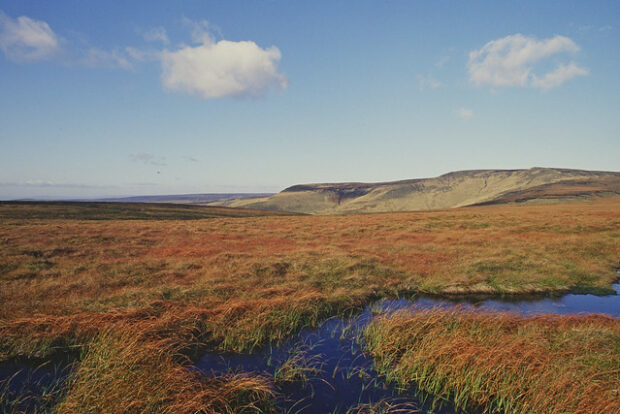
There was widespread coverage over the weekend including across the Telegraph, Guardian, Express, Press Association, BBC, ITV and Sky News of new Government action to protect peatlands and the natural environment by banning the sale of peat for use in the amateur gardening sector by 2024.
The announcement followed an extensive public consultation, which received more than 5,000 responses with over 95% in favour of government taking action to ban retail peat sales. The Government has also pledged to continue to work closely with the professional horticulture sector on speeding up their transition to peat-free alternatives ahead of a ban for the professional horticulture sector, recognising that the professional horticulture sector faces additional technical barriers that will take longer to overcome.
Environment Minister Richard Benyon said:
This Government understands the importance of keeping peat healthy and in the ground, here and around the world – to lock up carbon, strengthen drought resilience and serve as a powerful nature-based solution to climate change.
The actions announced today mark a new chapter in the story of our iconic peatlands – safeguarding their long-term health and vitality as part of our commitments to achieve Net Zero and deliver our 25 Year Environment Plan.
Chair of Natural England, Tony Juniper said:
Peatlands are precious ecosystems that harbor beautiful and fascinating wildlife, shape the character of iconic landscapes, purify water and help to reduce flood risk. They are also out largest natural carbon stores, locking away over 580 million tonnes. This ban on the sale of peat-based compost and work to phase out use in other areas is an essential step toward protecting these valuable natural assets and allowing for the recovery of degraded areas.
We are working with Defra and partners on the ground to restore thousands of hectares of peatland habitats, and today have awarded over £11 million to restore lowland sites in the south-west of England, and upland sites in the north of England. These projects will have multiple benefits, holding carbon, helping some of our scarcest wildlife to recover, reduce flood risk and render landscapes more resilient to climate change impacts such as drought and fire.
Professor Alistair Griffiths, Director of Science and Collections at the Royal Horticultural Society, said:
Peatlands are the world's largest carbon store on land, with great potential to store carbon long term, helping to reach Net Zero. They reduce flooding, when rewetted reduce fire risks and provide valuable habitats for both plants and animals. To tackle the climate and biodiversity crises, it is essential that we have a sustainable transition to peat-free alternative growing medias. The RHS stopped selling peat-based growing media bags in 2019 and will continue to work with Defra, industry and gardeners to accelerate the transition to peat-free.
Peatlands are the UK’s largest carbon store but only approximately 13% of our peatlands are in a near-natural state. This degradation has occurred due to drainage for agricultural use, overgrazing and burning, as well as extraction for use in growing media. Bagged retail growing media accounts for 70% of the peat sold in the UK and is frequently misused, for example being used as a soil improver rather than a medium in which to propagate plants. When this extraction takes place, the carbon stored inside the bog is released as carbon dioxide, contributing to climate change.
The Government also launched a new £5million fund to promote the use of peatlands for sustainable farming. It will support the uptake of paludiculture – the practice of farming on rewetted peatland – which will help, further safeguard food security, produce alternatives to horticultural peat and reduce environmental impacts.
Alongside, through round two of the Nature for Climate Fund Peatland Restoration Grant, Natural England awarded nearly £11 million to six projects to support restoration works on over 7,000 hectares of peatland, adding to more than 8,000 hectares already funded through round one.
1 comment
Comment by John W. Baxter posted on
Pity we still accept that burning heathland is a good thing to do to regenerate new growth, knowing that it oxidises the carbon in peat as it burns. It may be the cheapest option but surely we have more expensive alternatives today!.